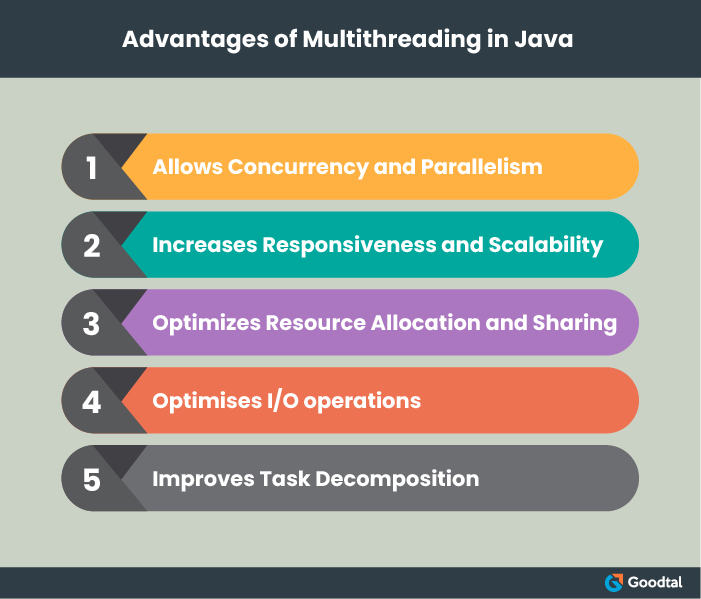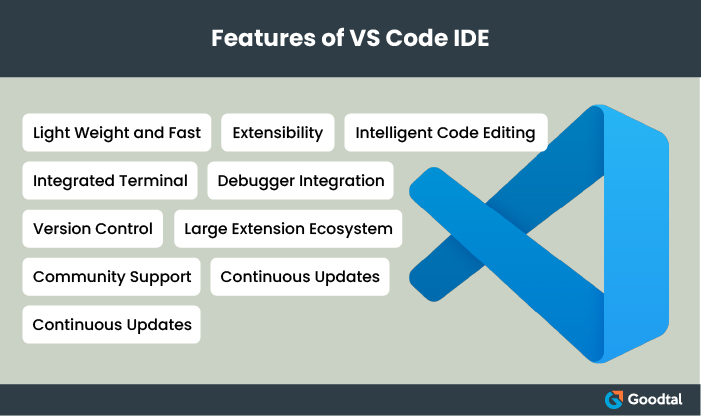
If you are reading this blog, it implies that you are also a part of the software development industry. As members of this huge software development community, we all know that we can’t stop discussing Java!
Java development is a big domain in software development, and it has been so for a decade at least. Irrespective of how many languages or technologies have joined the race, Java still reserves its place, so much so that almost all software developers realize that they must learn Java and have the capability to develop at least basic applications with it.
What is so special about Java and why do developers worldwide use it?
This question cannot be answered in a word or a sentence. It will require you to understand the features and benefits of Java. So, let’s straight move to this section.
Features of Java
Java has been developed over the years and so is a very comprehensive and complex domain. While growing, Java has integrated the needs and requirements of the market at each stage of its development.
Java is used for all types of applications from basic to advanced. These require different feature sets. So, it is very difficult to list all the features and elements of Java here. Let’s just stick to the main and basic! Here’s the list.
Platform Independence
The top Java developers worldwide use Java for building platform-independent applications that cater to a wide range of audiences.
Multithreading
The multithreading feature of Java offers several benefits to Java developers. Here is an infographic that describes the advantages of multithreading in Java.

Object Oriented
Java is a popular object-oriented language. Though it’s an old concept, no software developer with years of experience doubts the importance of object-oriented languages that facilitate clean coding making the code readable and the application easy to debug.
Secured
Java has various features and libraries that help develop secured applications even in large-scale requirements. We must however remember that no language or technology is fool-proof and developers must follow the best security practices to build completely secure applications. It is also necessary to update Java applications regularly to prevent security issues.
Applications, Trends, and Technology - Java Development
Let’s get straight into the trends, technologies, and applications influencing Java development.
DevOps
Lack of synchronization between development and operations management has often posed serious challenges in Java development in the past. DevOps comes as a solution to all such issues as development and operations work in collaboration to manage all aspects of application development with ease.
DevOps results in reducing errors, optimizing development cycles, and overall increasing RoI. As such DevOps is being adopted worldwide in the software development industry and Java developers must leverage the trend to bring the best to the table.
Platform-as-a-Service (PaaS) and Software-as-a-Service (SaaS)
Are Paas and SaaS new trends? We all know the benefits of PaaS and SaaS that make these modes popular among users. These continue to be the most happening trends in software development, including Java application development.
Artificial Intelligence (AI) and Machine Learning
Artificial Intelligence and Machine Learning are now essential elements of all smart applications. Java is largely being used for implementing these technologies as it has a wide variety of libraries available to support such needs. The selection of libraries should be based on the requirements of your application, as well as complexity. The best implementation will depend on an effective selection.
Spring Framework
Spring framework is a modular framework for building enterprise-level applications in Java. It helps build complex and scalable Java applications with ease. Common features of the Spring framework are Inversion of Control, Dependency Injection, Aspect Oriented Programming, robust support for data access, MVC module, transaction management, security, modular design, simplified configuration, testing support, etc.
Serverless Architecture
Wherever you try to read about the trends in Java development, you will find Serverless Architecture! What is serverless architecture and why is it trending?
Serverless Architecture is based on a cloud-computing model such that the developers can build and run applications without having to manage the server infrastructure.
In Serverless Architecture, developers just need to focus on writing the code that responds to events and triggers while the cloud service provider facilitates scaling and managing the resources to execute the code. Serverless Architecture is event-driven, it has automatic scaling, allows stateless functions, promotes microservices architecture, and reduces the costs for the user by allowing Billed by Execution technique.
Big Data Analytics
Big Data Analytics has huge demand in the market and businesses are trying their best to make the most out of it. Java Database Connectivity allows seamless connectivity with major databases which makes data storage and extraction effective in Big Data Analytics. Moreover, Java integrates well with major Big Data technologies and platforms such as Apache HBase, Apache Cassandra, Apache Kafka, etc.
Apart from the above, Java has built-in serialization and deserialization mechanisms that help manage data in big data processing and analytics.
Cloud Computing
Why are developers choosing Java for Cloud Computing? Cloud-based applications require certain features that Java can conveniently offer. Java helps in cloud computing by offering platform independence, rich ecosystem, scalability, community support, security, compatibility with popular cloud services, microservices architecture, containerization, distributed computing, high performance, error handling, continuous integration, and DevOps. Thus, Java can be a very good choice for cloud applications.
VS Code
If you are an experienced Java developer, you must be familiar with some very advanced IDEs for Java development. VS Code is one such IDE that is gaining popularity. Here are some of the features of VS Code IDE that are making it an emerging Java development trend. 
Challenges in Java Development
Like any other language or technology, Java development is also not free from challenges, irrespective of how advanced it is! Here are the challenges that Java developers must prepare for.
Concurrency and Multithreading
Though Java is popular among developers, managing concurrent processes while ensuring thread safety is a challenge for developers, at times leading to deadlocks and wastage of time.
Memory Management
Developers must focus on efficient memory management in Java. In the absence of effective memory management practices, there can be memory leaks and performance bottlenecks in Java applications.
Outdated Libraries
When we are discussing outdated libraries, Java is not the only technology that poses a challenge. Almost all technologies that have existed for a long have loads of libraries available, and some of them are outdated. These outdated libraries and frameworks are tough to handle and can lead to compatibility glitches and security threats.
Complexity of Tools
As Java has advanced, the tools used with it have also become complex. It is often difficult for developers to train themselves with all these complex tools. This increases the time required in development leading to longer development cycles. They have to further keep updating themselves on newer tools or even newer versions of tools.
Suggested Reading: Challenges Faced in Hiring the Best Java Developers for Your Project
Security Concerns
You must have heard a lot about the built-in security capabilities of Java. However, the possibility of security threats cannot be ruled out completely. Despite the built-in security capabilities of Java, developers must be cautious against new threats when dealing with third-party APIs or libraries. These require periodic upgrades and at times specific upgrades when some threat is encountered.
Steep Learning Curve
Java has a huge ecosystem and it can take years for a developer to learn or master it completely. Developers find it challenging to learn all the features and functionality to be able to leverage them. Apart from that, the best practices in Java also change rapidly, making it difficult for developers to cope.
Performance Tuning
On one hand, we say that Java is high in performance. However, in reality, achieving optimum performance in Java applications requires fine-tuning, profiling, and optimization. This is time-consuming and an art that only experts can fully understand.
Enterprise Integration
Integrating Java applications with other enterprise systems and technologies is difficult in large-scale applications. Version compatibility and transitioning between difficult versions further increase compatibility problems. These go severe when you are integrating old code into the new release.
Lack of Language Features
Compared to modern languages, Java is believed to be less expressive in syntax. It also lacks certain language features that impact the developer's productivity.
Containerization and Microservices
Though Containerization and Microservices architecture are considered major benefits of Java, adapting a Java application to the containerized environment and Microservices architecture is not child’s play. It requires considering dependencies, orchestration, and resource utilization to implement these in Java.
Dependency Management
Most languages struggle with managing dependencies. Java is no exception! Managing dependencies in Java in large-scale applications often leads to version conflicts. It also increases complexity as all components must work together without any performance problems.
Suggested Reading: What Does the Future Hold for Software Development in 2023 and Beyond?
Wrapping Up!
We are all convinced that Java is a major domain in software development and the demand for Java developers is very high in the market. Owing to the cutting-edge technologies that are powered by Java, the trend is set to grow.
There are many advantages of using Java. However, overcoming the Java development challenges requires the developers to stay updated on the best practices in Java development, and use the latest tools, frameworks, etc. Also, collaborating with the Java community and continuous learning and improvement are keys to effective Java development.
